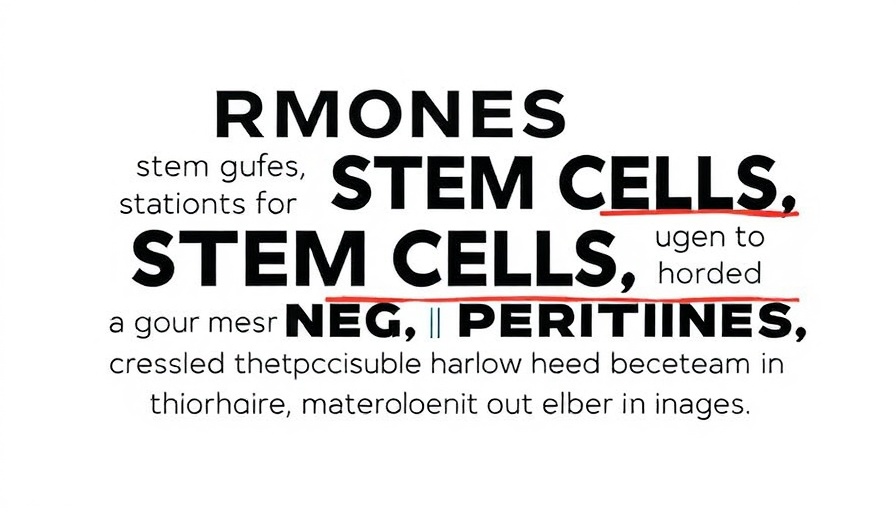
Unlocking the Secrets of Longevity Science
In a recent episode of the Lifespan podcast, Dr. David Sinclair, a renowned expert in genetics and co-director of the Paul F. Glenn Center for Biology of Aging Research, dives deep into the realm of longevity science and therapeutic interventions that suggest the possibility of living not just longer but healthier lives. As society grapples with the complexities of aging, Sinclair and his co-host, Matthew LaPlante, address the potential benefits and risks associated with various medical interventions like hormonal therapies, stem cells, and emerging innovations in epigenetics.
In 'Medical Interventions (TRT, HGH, Stem Cells, etc.) For Longevity,' Dr. David Sinclair dives into the complexities of aging and innovative therapeutic strategies, prompting us to explore its broader implications.
The Role of Testosterone and Growth Hormone
Sinclair highlights testosterone replacement therapy (TRT) and human growth hormone (HGH) as common treatments aimed at combating age-related declines. While these therapies can temporarily enhance vitality and muscle mass, they also carry risks. Sinclair emphasizes that simply feeling younger does not equate to reversing biological age. Instead, there may be potential dangers in pursuing such abundance-mimicking therapies without understanding their long-term implications.
Exploring Peptides and Exosomes for Cellular Communication
Attention shifts to peptides and exosomes—components that play crucial roles in cellular communication. While peptides are a promising area of exploration in aging research, Sinclair cautions caution as much of the evidence remains anecdotal. Exosomes, tiny vesicles that transport information between cells, could revolutionize treatment methods, potentially leading to the regeneration of tissues and combating senescence.
Stem Cells: A Double-Edged Sword?
Stem cell therapy emerges as another intriguing prospect for longevity, allowing for the rejuvenation of aging tissues. Sinclair notes that while autologous stem cells harnessed from an individual's body present exciting potential, the challenge lies in ensuring their proper integration within the body. Current research indicates that banking young stem cells may lead to remarkable advancements in generating healthy tissues as we age.
Future Innovations: A Brighter Horizon
With cellular reprogramming techniques evolving, there is growing hope to reset cellular aging without the adverse effects associated with traditional methods. Sinclair’s work indicates that the epigenetic reprogramming may offer a pathway not just to extend life but to improve overall health—a notion that resonates deeply in an era focused on longevity and performance.
In a world where aging is often seen as an inevitable decline, Sinclair’s insights inspire curiosity and confidence that the landscape of longevity science is on the brink of transformational change. Though we are not yet there, understanding how to interact with our biology offers a thrilling frontier that continues to grow. Those interested in living healthier and longer can begin exploring the most recent findings today, with further validation likely to come soon.
 Add Row
Add Row  Add Element
Add Element 


 Add Row
Add Row  Add
Add 

Write A Comment